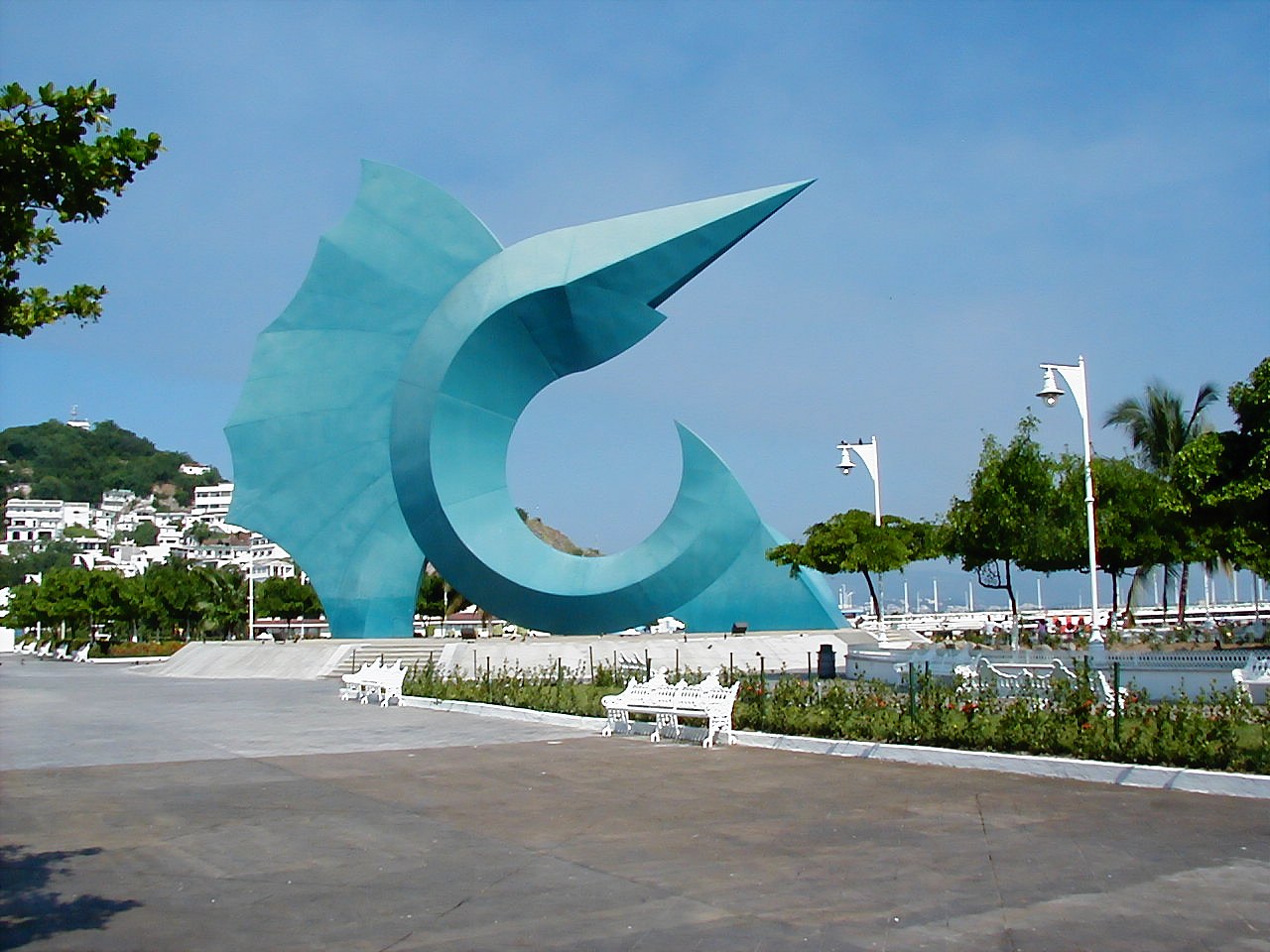
“No te puedo olvidar,
Contigo descubrí,
Tantas cosas que hay en mí.*”
“Nadie Podrá” – Jesse & Joy [Web site ; myspace]
My colleague Stu Weibel and I journeyed recently to Manzanillo, Colima, Mexico for DC-2006: the International Conference on Dublin Core and Metadata Applications, the sixth annual conference in this series, and the eleventh year of Dublin Core-related gatherings that began with a modest invitational meeting of fifty experts at OCLC in 1995. The conference has now become one of the – if not the – premiere international conferences on metadata applications.
Our hosts, the University of Colima (Universidad de Colima), chose the warm and inviting Pacific coast setting of Manzanillo for the event. This area has a history that spans from Hernán Cortés’ original vision of the port of Manzanillo as a gateway to Asia (his plan: riches from Cathay would land in Manzanillo, be transported overland to Veracruz, and from there shipped to Spain – a vision briefly realized then abandoned for political and practical reasons) to fleeting celluloid fame as the beach on which Bo Derek ran in one of the few, remembered scenes from the 1979 hit film, “10.”
Like its recent predecessors, DC-2006 combined presentations of scholarly papers, working group meetings, tutorials, and opportunities for mingling and making informal connections with some of the best and brightest in the field. (Note: Tutorials and presentations are posted here; Papers are published in print and will also appear on the Web; Working groups reports will appear on the Dublin Core Web site). And as with prior conferences, conference-goers were treated to something uniquely local and truly world class – at DC-2006, courtesy of organizers Lourdes Feria and Javier Solorio of the University of Colima, we were invited to witness a special performance of the world-renowned Ballet Folklórico de la Universidad de Colima, a very talented group who alternated choreographed native dances, singing of traditional folks songs, and Mariachi music. The outdoor performance was marred only by the intrusion of a powerful rain storm that abruptly – to our collective disappointment – cut short a truly wonderful performance.
Stu has posted commentary (Stu’s posts here and here) on some of the major themes, findings and takeaways from the event including two posts on “data modeling,” a phrase to chase away the timid and solicit hair-splitting dialogue among the initiated. Wishing to avoid either response from IAG’s readers, I would suggest the things-to-know are twofold:
- At its best, a data model is a well-thought-out and documented world view paired with rules of engagement. A commonly-adopted data model enables diverse parties to exchange, build, extend data and services without the risk of being Balkanized. It’s a good thing.
- The DCMI Abstract Model (DCAM), a data model of the best sort, is gaining adherents, and in presentations at DC-2006 was variously suggested to have significant potential value to software developers, and was even put forward as a data model that might usefully inform the next generation of cataloging rules during a special session (see notes) on RDA (Resource: Description and Access, the in-development successor to AACR2)
Other presentations included a fascinating behind-the-scenes insight into work on the Archimedes Palimpsest (i.e. a project recovering the text of a work by Archimedes that exists only in ghostly form, if you will, in paper that was repurposed for other text (see Stu’s post here)). And I suspect many IAG readers would have enjoyed – as I did – being part of the lively, part face-to-face, part virtual “Special session on Social Networks: Tagging and DC metadata” that included podcast presentations (all three excellent – see notes and links here) with the presenters joining the discussion remotely via conference call. It would seem that more than a little evidence is emerging that users can contribute very usefully to the metadata flow.
All-in-all DC-2006 was an excellent conference, and I’m delighted my first trip to Mexico coincided with Dublin Core’s first meeting in Mexico. DC 2007 will be in August in Singapore, hosted by the National Library Board in cooperation with Wee Kim Wee School of Communication and Information of Nanyang Technological University. Mark your calendars.
[*English translation of the lyrics to “No One Will Be Able,” courtesy of my colleague Larry Olszewski:
I can’t forget you,
With you I found out,
So many things that there are in me.]
[Pictured: the Sailfish sculpture by the artist Sebastian in Manzanillo (Centro)]
No comments:
Post a Comment